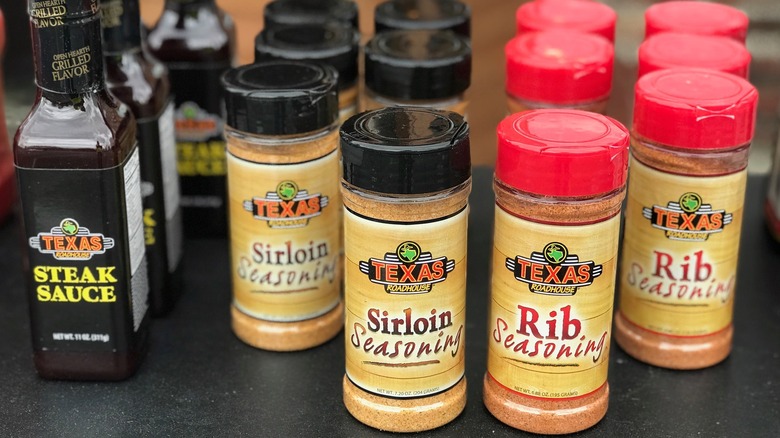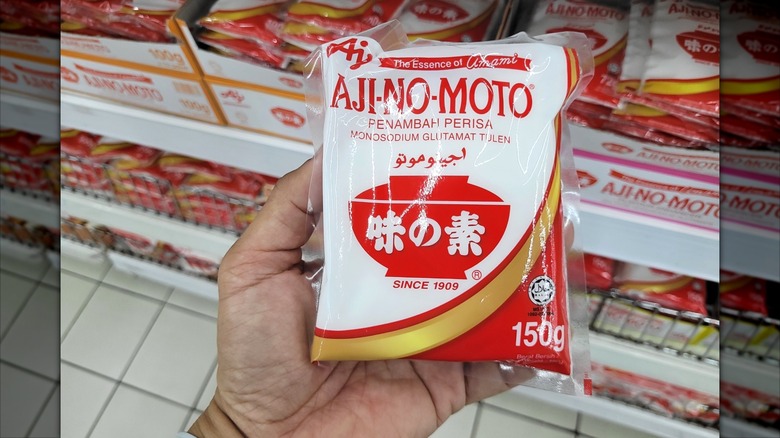The Controversial Ingredient In Texas Roadhouse Steak Seasoning
Like many successful chain restaurants, Texas Roadhouse offers its own line of products that can be found in select grocery stores and procured online. Along with the chain's margarita mix and two steak sauces (which, incidentally, took first and second place in our ranking of steakhouse steak sauces), Texas Roadhouse also offers branded sirloin seasoning.
Upon reviewing the product's ingredient list, we took notice of one component that's been subject to a fair — or, more accurately, unfair — share of controversy in the U.S. Often referred to as MSG, monosodium glutamate is a common food additive that has unjustly earned a bad reputation.
MSG is a manufactured form of an organic compound that's found in meat and cheese, along with many other foods. While the additive has undergone rigorous evaluation and has full approval from the FDA, some people claim that consuming foods containing MSG causes symptoms like headache, hot flashes, and nausea. To date, no credible study has found evidence that MSG causes the physical effects commonly attributed to the additive. These claims become even more spurious when you consider the ingredient's popularity in places outside of the U.S. MSG is a staple seasoning throughout most of Asia, yet the symptoms it supposedly causes are primarily reported by people in the West.
Did a hoax lead to MSG's bad reputation?
It's worth noting that many of the myths about MSG's negative effects are linked to Chinese food specifically. In fact, the grouping of symptoms was problematically dubbed "Chinese-restaurant syndrome" based on a letter sent to the New England Journal of Medicine in the late '60s. The letter's author, Dr. Robert Kwok, claimed to experience mysterious symptoms after consuming Chinese food from a local restaurant. His experience kicked off research into the additive, which amounted to little more than a smear campaign.
Here's where things get weird. Decades later, a man came forward and claimed that he created Kwok as a prank to see if the prestigious medical journal would really publish his letter. Even stranger, children of the real Kwok, since deceased, countered that he was indeed responsible for the letter sent to the journal.
MSG has a strong association with umami, which is one of five flavor elements along with salty, sweet, sour, and bitter. In fact, the Japanese scientist who first detected umami in food was the same person who developed the process for extracting the component from seaweed and turning it into a seasoning. Umami, which provides both flavor and mouthfeel, is a complex element best described as meaty and savory. Lots of foods are naturally umami-rich, including tomatoes, mushrooms, seafoods, and fermented items. MSG is also added to lots of processed foods to boost their flavor, as illustrated by Texas Roadhouse's sirloin seasoning.

